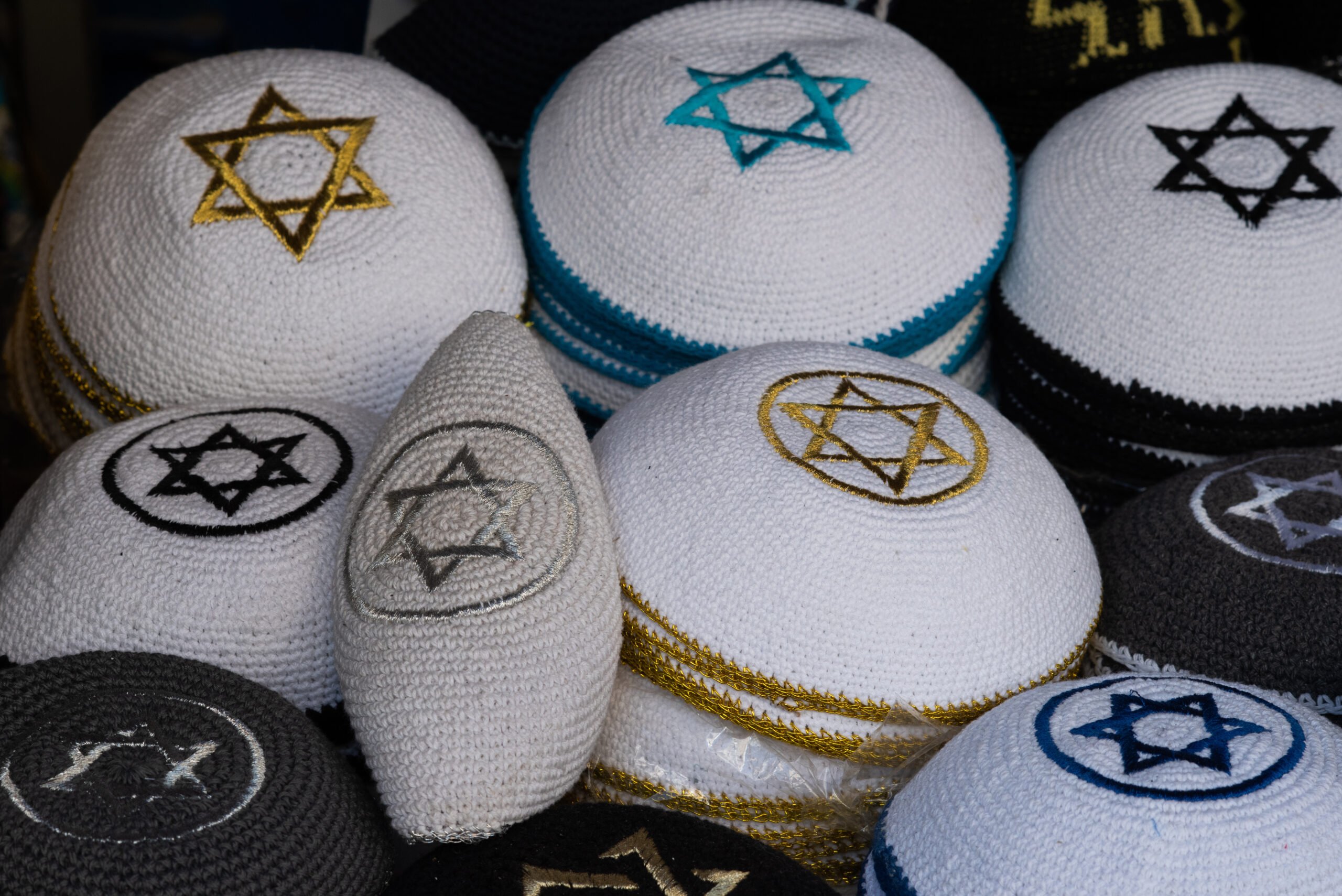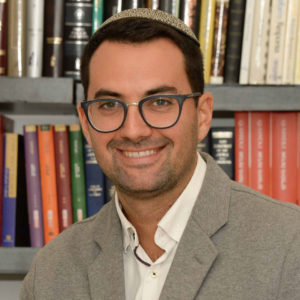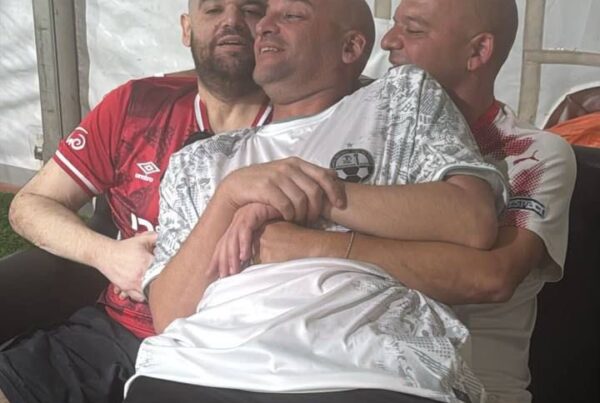Rosh Hashanah is our annual reset—the day we breathe in the world as it is and breathe out the world as it might yet become. We arrive with complicated weight: grief and fear after the brutal attacks of 7/10 and two years of war; pride and pain intertwined; a constant background noise of outrage and confusion online.
Tho Torah portions Nitzavim–Vayelech, one that we read just before Rosh Hashanah and the second one just after, teaches a sequence for such a moment: first nitzavim—stand together, firm and present, clear about who we are—then vayelech—walk forward. Stand first; then move. Today is the day to stand, to understand, to listen, to evaluate so later we can walk stronger together.
This morning I offer three lenses, not as final answers but as a way of seeing: the antisemitism I fight, the Israel I love, and the Judaism I live. See them for a few minutes through my eyes, and, even if you disagree, let them open space for honest debate, courageous doubt, and constructive dialogue—gifts our Jewish people and our American nation deeply need.
1) The Antisemitism I Fight — Learning from a Virus
Antisemitism is not just a bad opinion; it is a virus. And COVID reminded us how viruses behave: they mutate, lie dormant, flare in seasons, and travel with crowds. Humanity has only eradicated one virus—smallpox. Everything else we manage: we vaccinate, isolate when necessary, lower transmission, reduce mortality. Antisemitism works the same way. We cannot build a Jewish identity against it—just as you cannot build an identity against influenza. We fight it, yes, but we also must live beyond it.
Our grandparents tried different “cures.” In the 19th century, some thought assimilation would end it. In the 20th, integration. In the 21st, we know: neither erases the pathogen. Antisemitism adapts, wearing new masks in every era: pagan Rome’s “lazy Jews,” Christian accusations of deicide, Islamic slurs of “prophet killers,” medieval blood libel, racial “science,” or conspiracies that accuse Jews of running both Wall Street and the Bolshevik Revolution. Today, new variants emerge: on the far right, “Jews push the woke agenda”; on the far left, “Jews are colonialists, privileged, genociders.” October 7th was like a super-spreader event: the virus that had been somewhat contained suddenly spiked across the globe.
So how do we live wisely with a virus? Five guiding rules:
- Right-size the risk. Neither panic nor denial. Hysteria harms, but so does minimizing. We must practice calm vigilance. Just as you don’t assume every passerby carries COVID, we can’t assume every person is an antisemite. Living that way leads only to fear and isolation.
- Vaccinate. Jewish life is our vaccine. Study, community, mitzvot, Shabbat tables—these do not erase the virus but strengthen our immune system. Proud, knowledgeable Jews create resilience.
- Use the right tool for the right strain. You don’t treat influenza with a COVID booster. Likewise, don’t feed trolls with facts—starve the algorithm. With the uninformed, teach patiently. With institutions, enforce norms. Sometimes the right response is humor; sometimes story; sometimes firm boundaries.
- Practice community hygiene. Report incidents, coordinate security, build alliances with neighbors, educators, and clergy. Teach our kids to distinguish between criticism of policy and dehumanization of Jews.
- Do not carry other viruses. A people suffering from this virus cannot afford to spread others—racism, Islamophobia, scapegoating. If we ask for moral clarity, we must model it.
One last truth: success is not only fewer cases but lower lethality. Even amid the noise, most incidents today are words, graffiti, or online hate—not pogroms or synagogue burnings. That perspective matters. Our job is to reduce severity and keep Jewish life open, joyful, and public.
So yes—fight the virus. But do not live only as patients. Live a Judaism that sings beyond the sickness. Our identity is not “against.” Our identity is covenant, hope, mitzvah, learning, kindness, Shabbat light, and joy.
2) The Israel I Love — Choosing the Real over the Ideal
I love Israel. Not a postcard; not a slogan. I love the dust of the Negev and the salt on the Tel Aviv breeze, Naomi Shemer and Chanan ben Ari, Yehuda Amichai and Chayim Nachman Bialik, David Grossman and Etgar Keret. I read newspapers at dawn and Israeli series at night. I donate, teach, visit. Like many of you, I carry a piece of Israel stitched into the lining of my heart.
Loving the real Israel means normalizing Israel. It means reading her own voices—novels, poems, journalism, history. It means learning her arguments in Hebrew cadence. It means seeing her struggles up close—governments that change, courts that restrain, protestors who fill the streets. And here is something extraordinary: in Israel, when people protest, they do not burn the flag—they raise it. Tens of thousands argue wrapped in blue and white. That is not fantasy; that is covenant. In the Diaspora many of us idealize Israel as an utopian country, but Israel IS-REAL, and every reality is not perfect.
Let me name a toxin: the phrase “As a Jew…”—used publicly as a performative preface to scold Israel for the applause of the non-Jewish crowd. Pirkei Avot warns: “Al tifrosh min ha-tzibur”—do not separate yourself from the community. Real love and real critique are spoken with your people, in the right place, in the right tone, for the sake of repair—not for the sake of applause. The prophets of Israel like Amos or Isaiah, already 2700 years ago, roared—but as insiders, in Hebrew, with tears in their voices. They did not hand our enemies cudgels to beat us with.
At the same time, beware the equal and opposite error: dogma. Loving the real Israel does not mean baptizing every policy of a government of the moment or declaring every military operation “perfect.” That is not loyalty; that is fanaticism. Our tradition is a dance between conscience and commitment. A dose of self-criticism keeps us from chauvinism. Too much corrodes love. The rabbis said, “Ahavah mekalkel et ha-shurah”—love can bend the line. Passion can warp judgment. How do we keep love from distorting? With honesty: facts over talking points; humility about what we don’t know; listening to Israelis across the spectrum; and a willingness to say, “I stand with you—and I still have questions,” or “I have questions—and I still stand with you.”
The Zionist movement never promised utopia; it promised responsibility. The Tanakh already warned that the desire to be “like all the nations” would bring kings, courts, taxes, corruption and politics. A normal country bears normal burdens—and the extraordinary burden of being a Jewish country in a dangerous neighborhood. After October 7th many of us felt our love harden into steel: Israel must live; Israel must defend her children. And many of us also wrestled—about policy, strategy, and morality in a long war. That wrestling is not a bug in the Jewish system—it is the system. Isaiah thundered, “Zion shall be redeemed with justice.” Amos cried, “Let justice roll like waters.” They loved Israel enough to demand better.
So what does mature love look like—love of the real Israel?
- Stand with her legitimacy—publicly, without embarrassment. Full stop.
- Read her—deeply. Israeli thinkers, historians, novelists, poets. Let Israelis form your imagination.
- Precision, not performance. If you critique, be specific. Ground it in values and facts, not borrowed scripts from our enemies.
- Covenant, not contempt. Keep the family tone even when you disagree.
- Humility. Many of us do not pay taxes there and do not send children to the IDF (unless they choose). That reality should shape how we speak. We don’t know all the facts. Let’s be more humble.
Normalize Israel. Love her as she is—dusty, loud, complicated, alive. A place where Jews argue fiercely and wave the same flag. That is love strong enough to last.
3) The Judaism I Live — Kiddush Hashem Beyond the Symbols
If Jewish life is only reactive—only fighting hate or defending Israel—we will be strong in crisis and weak the rest of the time. Judaism is not merely an alarm system and a flag; it is Torat Chayim—a living Torah—meant to sweeten our speech, sharpen our ethics, and enlarge our kindness; to make us better spouses, more honest partners, generous neighbors, faithful friends.
After October 7th, many embraced “Jew and Proud.” Some removed visible symbols out of caution; others wore them more boldly, a quiet Hineni—“Here I am.” Both responses are understandable. Today I want to add a deeper pride, the one our sages call Kiddush Hashem—sanctifying God’s Name in the eyes of others.
The Talmud teaches: when a person studies Torah and conducts business faithfully, speaks pleasantly, and acts with integrity, people say, “Happy the parent who taught them Torah… Blessed is the God of Israel,” and through that person “the Name of Heaven becomes beloved” (Yoma 86a). That is Kiddush Hashem. Its opposite—Chillul Hashem—we know too well: when Jewish names are tied to scandal, the stain spreads. But every day gives chances to do the opposite: an Israeli start-up that saves lives; a Jewish scientist whose discovery heals; a quiet act of chesed that makes people bless.
The Jerusalem Talmud tells of the great sage Shimon ben Shetach. Once his students bought him a donkey and found a jewel tied to its neck. His students cried, “A miracle!” He answered, “I bought a donkey; I did not buy a jewel,” and returned it. The owner exclaimed, “Blessed is the God of Israel!” No sermon, no hashtag—just honest action that no one could deny.
That is the Judaism I want us to live this year. Yes—wear the Magen David. Yes—post the breakthroughs of Israel start ups. But let the world recognize us for something even more luminous:
- Not only kippot on our heads, but patience on our tongues every time we speak to others.
- Not only Stars of David on our necks, but scrupulous honesty in every invoice and contract.
- Not only dog tags for hostages around our necks, but going beyond the minimum the law requires to do what is right.
- Not only flags of Israel on our cars, generous hands, kindness, and simplicity with every human being.
Like it or not, each of us is a Jewish ambassador. If the world will not allow Israel to be “like all the nations,” then Israel must be better. If the world will not allow Jews to be “like all peoples,” then we must be better. Every interaction with a stranger is a chance to sanctify God’s Name. And make the world know a Jew not only by a star of david, a kippah or an Israeli symbol but because of our extreme kindness, our sharp minds, our commitment to our society, nature and the world. Let our symbols shine—but let our small deeds shine brighter.
Yehi Ratzon milfanecha, Adonai Eloheinu v’Elohei avoteinu v’imoteinu… May it be Your will, God of our mothers and fathers, that in this new year You grant us wisdom and courage:
- To fight antisemitism like healers fight a virus—right-sizing the risk, vaccinating our souls with Torah and community, using the right tool for each strain, practicing communal hygiene, and lowering the fever of hate without catching it ourselves.
- To love Israel as she truly is—to stand for her legitimacy; to read her books and hear her voices; to protest by raising her flag; to speak with precision, humility, and hope; and to keep covenant without contempt.
- To live Judaism as Torat Chayim—so that God’s Name becomes beloved through our deeds: integrity at work, tenderness at home, generosity in the street, joy at the table.
Write us for life; seal us for life. Let our kindness be contagious, our commitments steady, our words gentle, and our spines strong. If we cannot be “normal,” let us be better—a nation of Kiddush Hashem.
Shanah Tovah uMetukah,
Rabbi Uriel Romano – Broward Central Synagogue – Rosh Hashanah Morning, 5786






